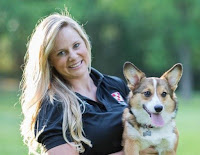Tuesday's Tips from our Doctors!
Recently our Doctors asked how they could share some facts about the
common (and not so common) things that can effect the health of our
pets in S. Florida. This is what we can up with. Be on the look out for
more Tips from our Doctors and be sure to let us know what other things
you would like to know about!
Canine Parvovirus
What is “Parvo”?
Canine parvovirus is a very contagious gastrointestinal
virus that can affect dogs of all ages. This virus can be deadly if left
untreated. Unvaccinated puppies are at the highest risk, especially those less
than four months of age. Parvovirus is spread by direct contact with
contaminated stool from other infected dogs and puppies. This virus is very
resistant to heat and cold, and unfortunately for this reason can live in the
environment for long periods of time. It is important to understand that any
places where dogs have access to could potentially have parvovirus in the
soil. The virus can also contaminate
leashes, dog beds, kennels, and food bowls.
What are the signs
and symptoms?
If you notice your puppy is acting lethargic, has a
decreased appetite or begins to vomit or have diarrhea contact your
veterinarian immediately! All of these symptoms could be signs that your puppy
may have been exposed to parvovirus. Most puppies that are infected with
parvovirus will become very dehydrated and can die within 72 hours if not
treated aggressively.
How is Parvovirus
treated?
The most important aspect of treating your puppy with
parvovirus is hydration and helping to control the vomiting and diarrhea.
Recently, some human antiviral drugs have had some benefit in treating dogs
with parvovirus. Puppies will also need to be treated with antibiotics in order
to help prevent secondary bacterial infections. Any dog or puppy that is
diagnosed with parvovirus needs to be immediately isolated from other dogs so
that they cannot further spread the infection.
How can Parvovirus be
prevented?
Most importantly vaccinating puppies and keeping them
isolated from other dogs before their vaccine series is completed can prevent
parvovirus. Many owners do not realize that one vaccine is not enough to
protect their puppy from parvovirus.
Puppies must complete their minimal three vaccine series before they are
able to socialize with other dogs, especially at places like the dog park and beach.
Oklahoma State University, 2015



Enhance your pet's quality of life with regular walks from K9 Day Care Service . Our team is dedicated to keeping tails wagging!
ReplyDelete